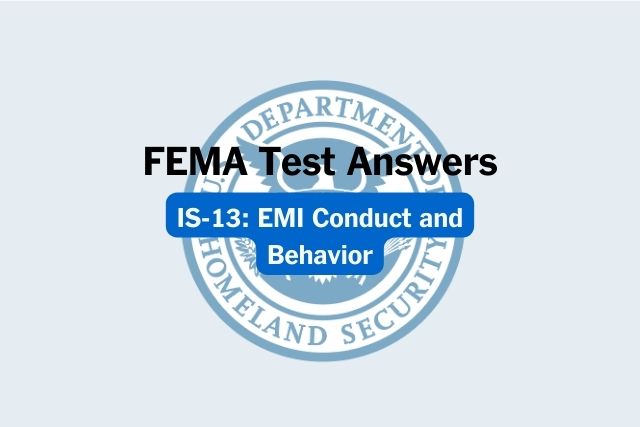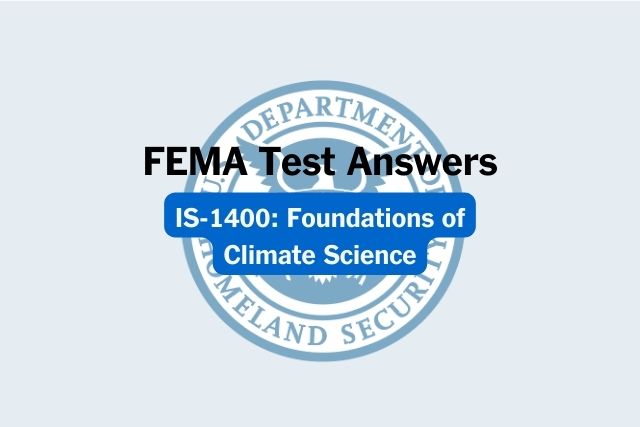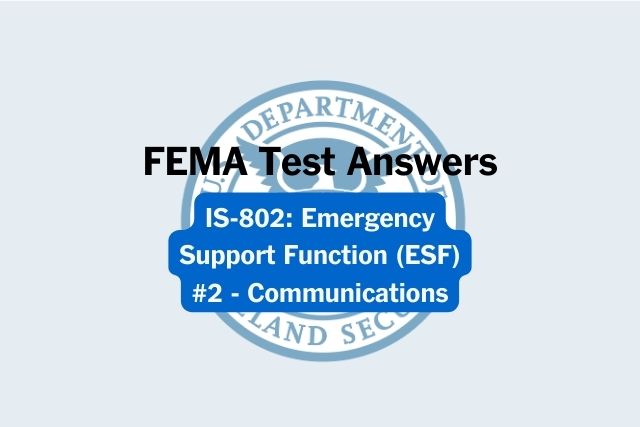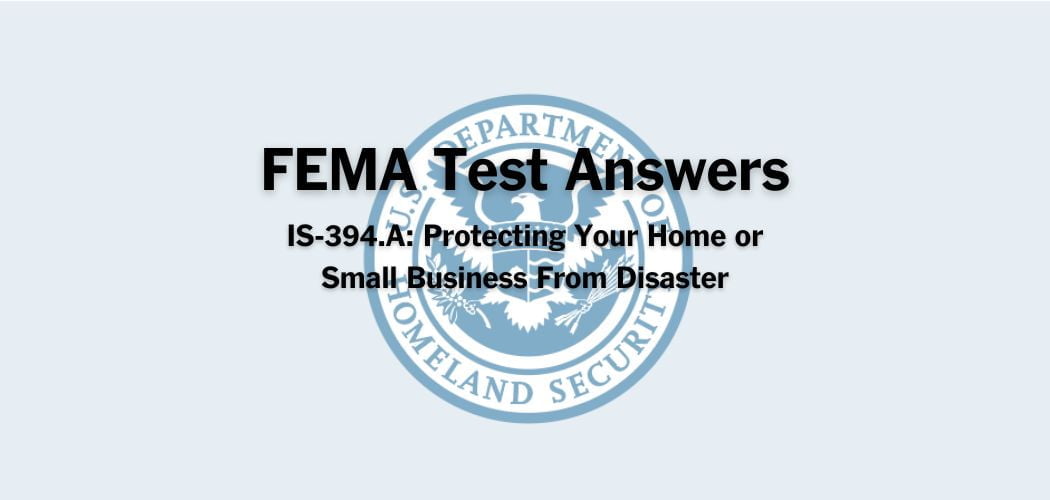Overview: The FEMA IS-1200 course was published on 12/2/2016 to provide guidance to first-line supervisors of 9-1-1 operators, call takers, and dispatchers on what to expect when deployed to a disaster site.
Primary audience: FEMA IS-1200 is for all first-line supervisors of emergency management communications personnel.
FEMA IS-1200 test answers
Each time this test is loaded, you will receive a unique set of questions and answers. The test questions are scrambled to protect the integrity of the exam.
Question 1. The APCO/NENA ANSI Standard for TERT deployment is a policy document not intended for TERT team leaders
A. TRUE
B. FALSE✅
Question 2. Because the TERT team will all work, sleep and eat in one place during the deployment, the team leader can communicate with the entire team at any time.
A. TRUE✅
B. FALSE
Question 3. Upon deployment, the TERT team briefing on safety should include
A. Information about restricted areas✅
B. Recommendation on local restaurants
C. Access to wifi in the facilities
D. All of the above
Question 4. During deployment, the TERT team leader needs to continually evaluate operational needs
A. TRUE✅
B. FALSE
Question 5. The APCO/NENA ANSI Standard for TERT deployment recognizes four components: Team Leader, Team Member, State Coordinator, and _____.
A. Administrator
B. Liaison
C. Safety Officer✅
D. Information Coordinator
Question 6. The TERT team leader should conduct a safety briefing with the TERT team members in the pre-deployment phase
A. TRUE
B. FALSE✅
Question 7. The first component of any successful team building is for the entire team _______
A. to know a lot about each other
B. to trust each other✅
C. to express an opinion of each other
D. to have worked with each other before
Question 8. Discussions between the team leader and the receiving agency TERT representative are private and should not be made public
A. TRUE
B. FALSE✅
Question 9. The TERT team leader should gather as much information as possible about which of the following:
A. All of the above✅
B. Weather conditions
C. Duration of the deployment
D. Transportation logistics
Question 10. Personnel issues may include a team member that has broken a criminal law or PSAP policy mandate.
A. TRUE✅
B. FALSE
Question 11. The forms of stress and emotional issues are universal and occur the same way in all deployments
A. TRUE
B. FALSE✅
Question 12. During deployment, the TERT team leader needs to
A. Update the work plan, as needed
B. Listen to the concerns of team members
C. Keep in contact with the home state
D. All of the above✅
Question 13. Even during deployment, the TERT team leader needs to be responsible for:
A. Resources for emotional support to the team
B. Resources to perform assigned job
C. Monitoring shift length
D. All of the above✅
Question 14. During deployment, the TERT team leader should not be involved with team meals
A. TRUE
B. FALSE✅
Question 15. Each TERT team member must have a resource number issued from:
A. Their direct supervisor
B. The Federal Emergency Management Agency
C. Their own State Police
D. Their own State Emergency Management Agency✅
Question 16. According to the course material, TERT leader may need to deal with personnel issues, such as
A. Team members who are concerned that the situation did not require a TERT deployment
B. Team members who are upset about missing activities at their own PSAP
C. Team members who forgot items at home they wanted to bring with them
D. Team members who exhibit unprofessional behavior on or off-duty✅
Question 17. Prior to arriving in the deployment area, the team leader should conduct a final review of several different topics. These include:
A. A reminder of why the team members are being deployed
B. The need to have the resource number and proper identification with them at all times.
C. The need for professionalism during the entire deployment
D. All of the above✅
Question 18. The transition plan discussed by the TERT team leader and the receiving agency point of contact should include:
A. Whether the TERT team will observe the receiving members before taking calls
B. Assuming the role of telecommunicator right away
C. Switching roles and having the receiving members observe the TERT team✅
D. All of the above
Question 19. TERT team leaders should remember that team members may or may not be in the same agency, city, or county as the team leader.
A. TRUE✅
B. FALSE
Question 20. TERT team leaders should review the expectations of the team members only before departure.
A. TRUE✅
B. FALSE
Question 21. TERT team leaders must gather as much information as possible about transportation logistics to the deployment area
A. TRUE✅
B. FALSE
Question 22. The responsibilities of the TERT team leader include which of the following:
A. Briefing the TERT team on the plan for deployment
B. Handling and transmitting any updates or changes to the deployment
C. Briefing the TERT team on the specific work plan
D. All of the above✅
Question 23. There are significant consequences for failing to have the proper authorization to deploy.
A. TRUE✅
B. FALSE
Question 24. According to the course material, the TERT deactivation process will include which of these steps?
A. The incident commander deactivating the TERT response✅
B. The deactivation flowing through the state TERT coordinator
C. The team returning and doing the actual check-out process
D. All of the above
Question 25. The responsibilities of the TERT team leader include which of the following:
A. Communicating with the receiving agency point of contact✅
B. Communicating with the local TV and press in the deployment area
C. Liaising between the multiple agencies involved with the response
D. All of the above



